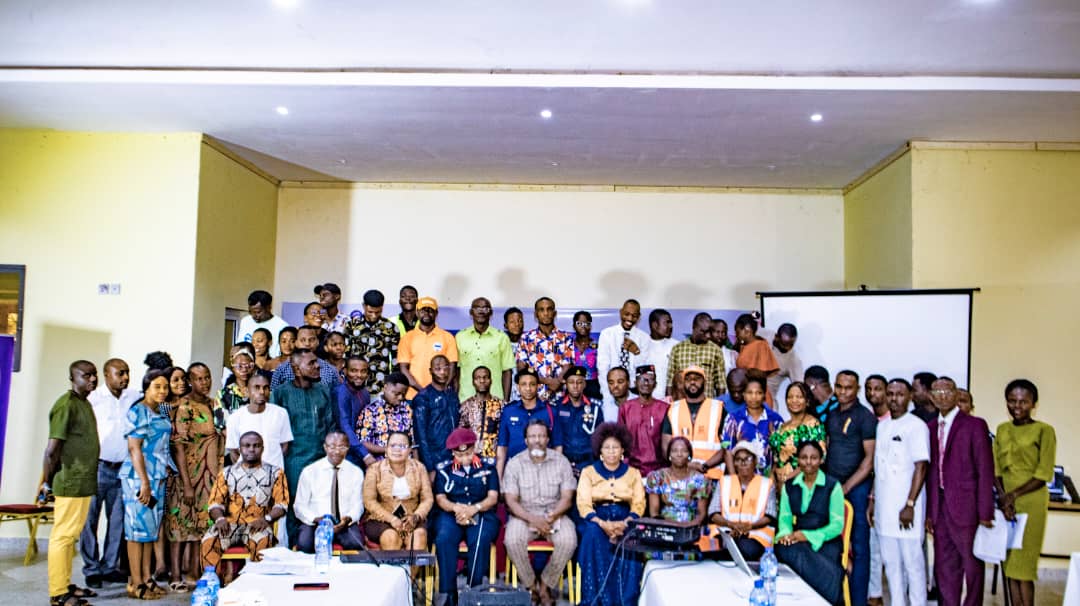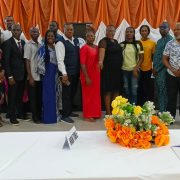Akwa Ibom Youth, CIF Demand Comprehensive State Emergency Response Strategy

Youth from Akwa Ibom State together with the Clement Isong Foundation in collaboration with ActionAid Nigeria have demanded for the development of a comprehensive State Emergency Response Strategy by the Government of Akwa Ibom State.
They also asked for the institutionalisation of community emergency response teams and drills, deployment of rapid needs assessment tools for timely disaster response and integration of climate and disaster education into school curricula.
Other demands made include inclusion of women and youth at every level of disaster planning and execution and dedicated funding to strengthen the capacity of the State Emergency Management (SEMA).
The demands were contained in a communique issued at the end of a one-day Youth-Led Enhancing Disaster Risk Management and Emergency Response Mechanisms held in Uyo, Akwa Ibom State on Thursday by the Clement Isong Foundation (CIF), in partnership with ActionAid Nigeria under the Strategic Partnership Agreement II Project (SPA II).
The communique had observed the absence of a structured disaster management strategy, such as early warning systems and standard operating procedures noting that this creates delays and inefficiencies during emergencies.
The gathering observed weak community-level coordination explaining that local actors often lack the organisation, training, and communication systems necessary for effective disaster preparedness and response.
The communique which highlighted limited youth involvement noted that young people are underrepresented in both the planning and implementation stages of disaster risk reduction, despite being key stakeholders and potential first responders.
Part of the observations read “Insufficient Rapid Needs Assessment Tools: The lack of standardised tools makes it difficult to assess and respond to the immediate needs of affected populations, leading to gaps in aid and support.
“Lack of Sustainability and Continuity in Governance: Many initiatives lack long-term planning or fail to survive changes in political leadership, leading to fragmented and unsustained interventions.
“Interventions Not Aligned with Actual Community Needs: Relief efforts and recovery programs are often top-down and generic, failing to reflect the real, context-specific needs of the affected populations, which reduces their impact and effectiveness.”
The forum which united key stakeholders across governmental, civil society, academic, and grassroots sectors to address pressing disaster preparedness challenges facing Akwa Ibom State recorded participation from the National Emergency Management Agency (NEMA), Nigerian Civil Defense Corps, Akwa Ibom State Ministry of Environment, Fire Service Commission, University of Uyo, Ministry of Women Affairs, Ministry of Humanitarian Affairs,
Akwa Ibom State Newspaper Corporation, Akwa Ibom Broadcasting Corporation, youth groups, and various civil society and private sector stakeholders.
According to the Clement Isong Foundation, the forum sought to spotlight the vital role of young people in building resilient communities and strengthening state-level emergency response frameworks.
The event provided a platform for robust dialogue, assessment of existing gaps, and co-creation of actionable strategies for a safer and more prepared Akwa Ibom State.
Key presentations at the event revealed glaring gaps in the state’s disaster management landscape, including the absence of a formal emergency response strategy, limited community level coordination, and a lack of adequate inclusion of youth and women in planning and response efforts.
Highlighting youth leadership in practice, young representatives from Oron and Ibeno shared success stories, ranging from community-led sanitation campaigns and pothole repairs to advocacy that triggered local government intervention in erosion-prone areas, underscoring the transformative power of youth in leading local solutions.
Earlier, Mr. Utibe Ekanem of Clement Isong Foundation reaffirmed the Foundation’s and ActionAid’s joint commitment to fostering community resilience. “This dialogue reflects the heart of the SPA II Project, ensuring that women and young people are not just beneficiaries but frontline actors in shaping sustainable emergency response systems,” he said.







